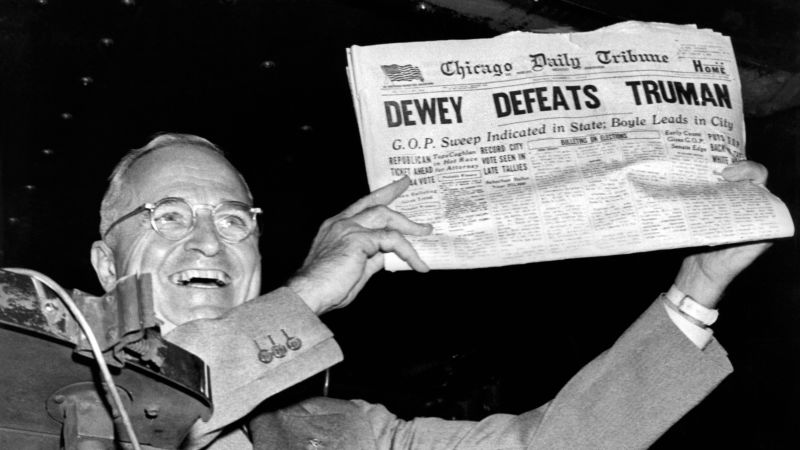As Democrats are split over the Israel-Hamas conflict and unenthused by their presidential candidate Joe Biden, there are growing comparisons to past tumultuous times within the party. With a divided convention planned in Chicago, some are drawing parallels to the chaotic 1968 election when Hubert Humphrey lost to Richard Nixon. The Vietnam War created divisions within the Democratic Party, with Humphrey failing to inspire younger anti-war voters. However, there is hope for a different comparison to the 1948 election when Harry Truman unexpectedly won against Thomas Dewey.
In a recent interview with Columbia Journalism School professor Samuel Freedman, the focus was on Humphrey’s pivotal civil rights speech at the 1948 Democratic convention in Philadelphia. The book “Into the Bright Sunshine” delves into this moment, where Humphrey boldly pushed for civil rights legislation within the party. Freedman highlights the significance of Truman’s bold moves in the ’48 election and urges Biden to take similar risks to secure victory in his current campaign.
Freedman also sheds light on Humphrey’s often overlooked early career as a champion for civil rights. Amid criticism for his Vietnam War support in later years, many forget his courageous efforts in the 1940s to advance civil rights within the Democratic Party. This important chapter in history, catalyzed by Black GIs and inspired by the global war against fascism, laid the groundwork for future civil rights achievements.
Drawing further parallels between past and present, Freedman reflects on Humphrey’s struggles in the 1968 campaign and the importance of reading the political mood accurately. Biden, facing a fractured party and a challenging opponent, must navigate these complexities with a keen understanding of the current climate. With lessons learned from history, Biden can strive to inspire unity and hope while acknowledging the division and challenges facing the country today.











